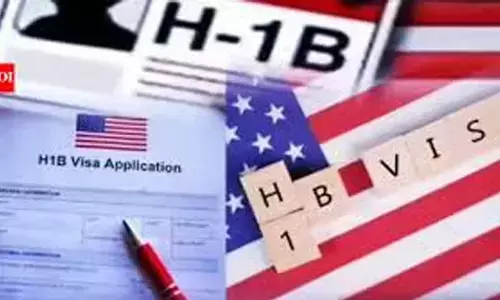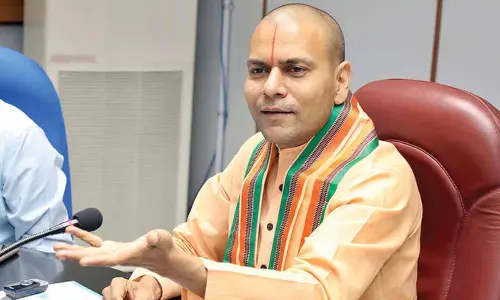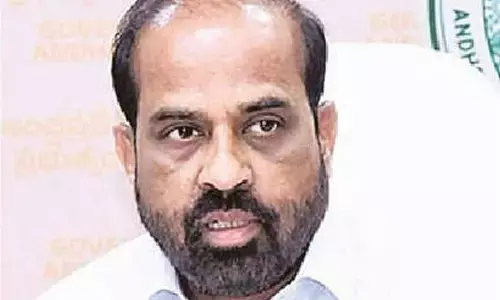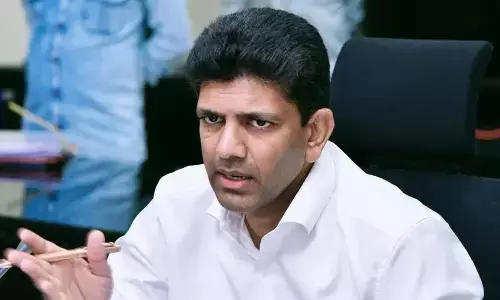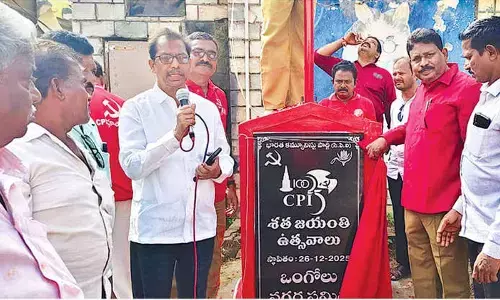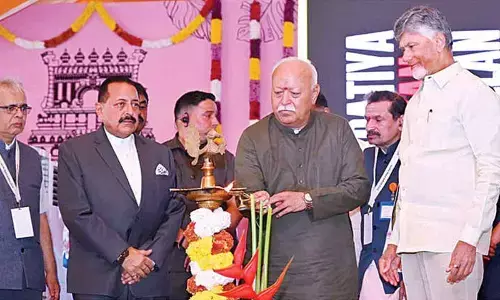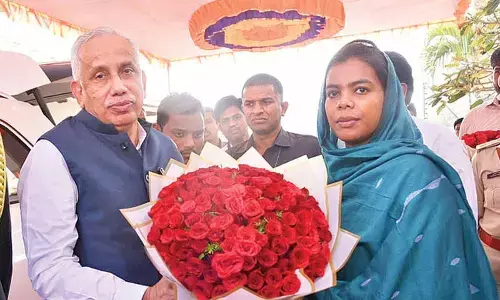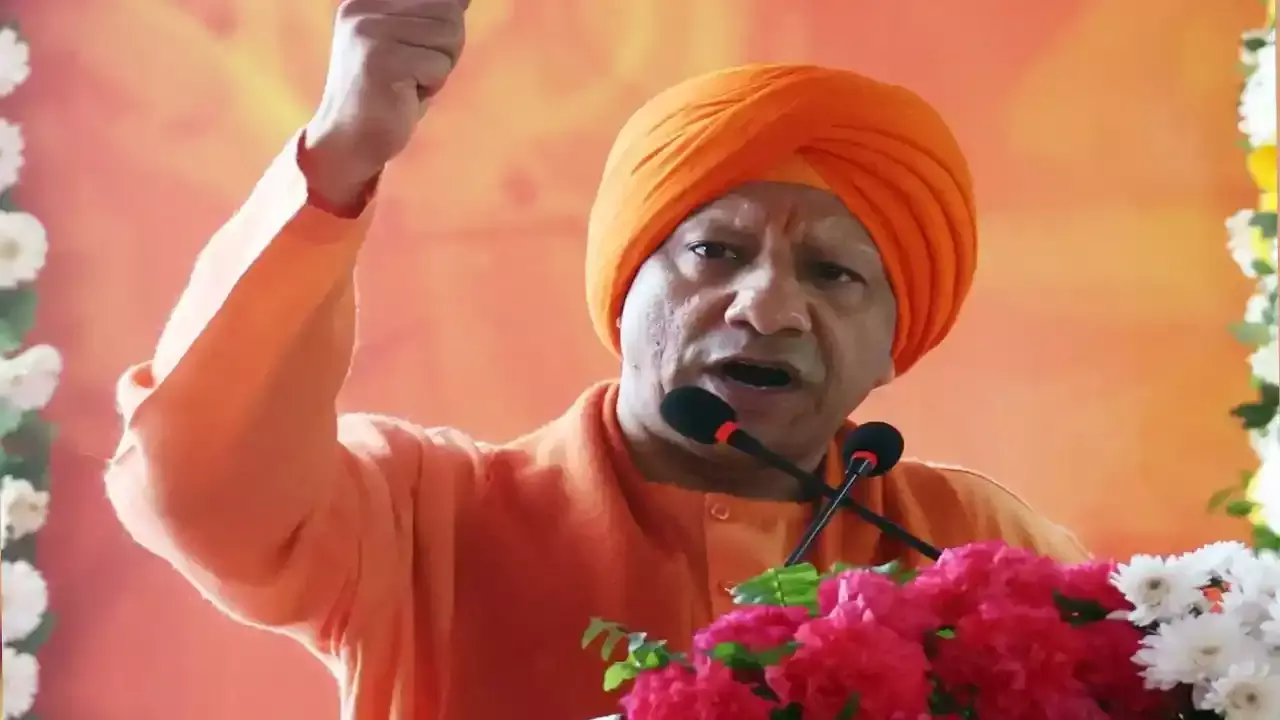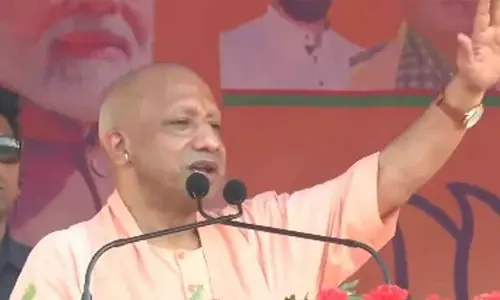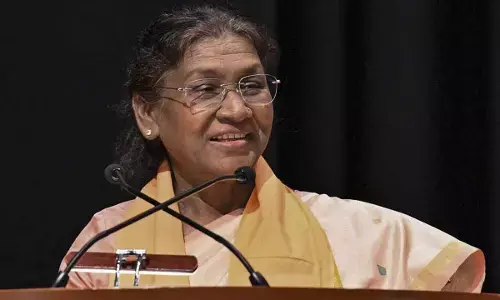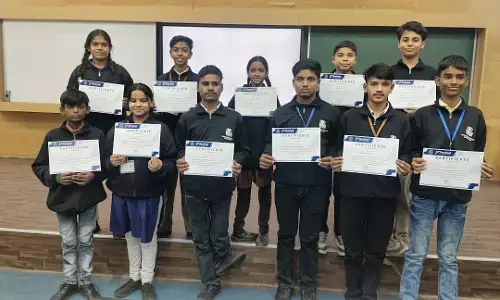LOOK BEYOND ‘ALLIANCES’ OF CONVENIENCE!
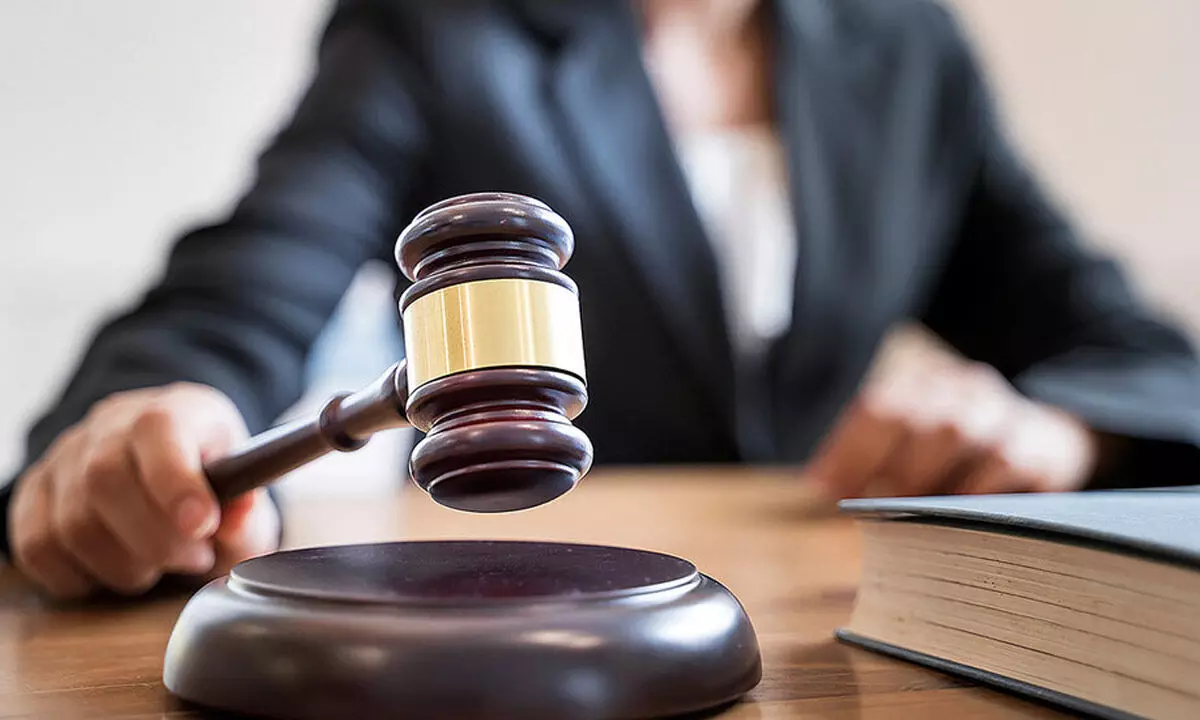
At last, the BJP-ledNDA government has saddled the throne of power at the Centre. As the BJP by itself could not reach the half-way magic figure : of 272 in the recently concluded Lok Sabha elections, it had to depend on the support of other splinter groups like the TDP and JDU
Hyderabad: At last, the BJP-ledNDA government has saddled the throne of power at the Centre. As the BJP by itself could not reach the half-way magic figure : of 272 in the recently concluded Lok Sabha elections, it had to depend on the support of other splinter groups like the TDP and JDU. No doubt the alliance with as many as 15 parties was forged by the BJP before the general elections, but there is no Constitutional provision that such an alliance should remain intact for the whole of five year tenure of the Lok Sabha. Similarly, the Congress led INDI alliance also fell short of the majority while the Congress itself could not touch the figure of 100.
The onset of alliance era commenced in the late 70s and many alliance governments have been able to complete the full term. However, the political freedom of the alliance leader party in such a case always remains frittered. Further, in the absence of a specific Constitutional provision for an alliance government, the Damocles sword remains hanging on the life span of an alliance government.
The lack of clear majority of the leading party in the alliance acts as a deterrent to it to take any bold decisions. So much so, even in the matters of internal and external security and international relations the much needed freedom to the Prime Minister is always lacking.
To put it differently, the fathers of the Constitution must have given a serious thought to such as uncertainty and then ultimately must have decided not to incorporate a provision for the alliance government. It is understandable to have an alliance of different political groups having identical or similar ideology. In such a case, obviously there would not be much distancing from the national goals. Unfortunately, the last general elections have seen some anti-nationals, Khalistanis, extremists, Jehadis and hard core criminals coming out with flying colours in the hustings and occupying the covetable MP seats. This is, indeed, a very serious matter. The very fabric of the Indian society has been at stake. Such elements in alliance with other not so dangerous political parties can create a chaotic situation in the country.
It is unfortunate that some leaders often cross the limits of decency in public life by their irresponsible utterances. The fundamental right of freedom of expression is used as if it was without any restrictions by such leaders which have all the potentials to create communal and class strife in the society. In fact, a responsible leader ought to impose self-restraint while in the public life. The need of the hour is to exercise self control and discipline in the public life. The character of the elected representatives should be crystal clear and un-impeachable. Pending serious nature criminal cases and the past criminal record of a contesting candidate should be the basis for disqualification of such people from contesting elections. The oath of secrecy and allegiance to the Constitution mostly remains an empty formality. This amounts to the self-deceit. The people of the country expect their representatives to be honest, well behaved, well educated and dedicated to the all round development of the country.
THREE FOREIGN JUDGES IN HONG KONG’S TOP COURT RESIGN
According to South China Morning Post daily newspaper, Hong Kong’s Judiciary has been thrust into the spot light after three foreign judges of the highest court resigned. Canadian lady judge Bewerley McLachin cited her age and a desire to be with her family as the reason while two British judges, Lawrence Collins and Jonathan Sumption pointed two concerns about the political situation in Hong Kong for their decision.
On the other hand, city leader John Lee said local judges had
been ‘unfairly’ treated and ‘abandoned’ by some of their colleagues from overseas.
SC ON LIMITATION
The division bench comprising Justice BR Gavai and Justice Prashant Kumar Mishra of the Supreme Court while allowing an appeal against the Bombay High Court where the appellant’s demand for refund of stamp duty paid towards an unexecuted conveyance deed was dismissed, allowed the appeal and set aside the High Court orders.
Inter alia, the court observed that even if the application u/s 50 of the Stamp Act for claiming refund was not strictly adhered to, yet keeping in view the settled principle of law that the expiry of period of limitation prescribed under any law may bar the remedy but not the right, the applicants are still held entitled to claim the refund of stamp duty amount on the basis of the grounds. The court also added that when the State deals with a citizen, it should not ordinarily rely on technicalities, even though such defences may be open to it.
J&K HC SLAMS TOURIST TAXI DRIVERS
The High Court for Jammu, Kashmir and Ladakh slammed the tourist taxi drivers of Pehalgam for fleecing tourists by charging higher fares from the fixed by the J & K tourism department.
In a case entitled, Tourist Taxi Stand No.1, Pehalgam & Another Vs. Union Territory of J&K and Others, Justice Sanjeev Kumar while dismissing the plea of the taxi drivers for more permits to ply taxis on the route, directed the authorities to ensure that the tourists are not harassed by the fleecing taxi drivers.
MADRAS HC CONVICTS A MAN FOR CRIMINAL CONTEMPT
A division bench of the Madras High Court comprising Justice MS Ramesh and Justice Sunder Mohan recently convicted a former loco pilot PU Venkatesan for the criminal contempt of the court and order his imprisonment for six months.
Prior to his conviction, the court asked him whether he stands by his letters, the accused replied in affirmative and asked the court to pass any order against him.
The court in its order noted that the accused had not shown any remorse for his reckless allegations made against the judges including a supreme court Judge. This amounts to the belittling the judiciary and obstructing the administration of justice, the court added.








